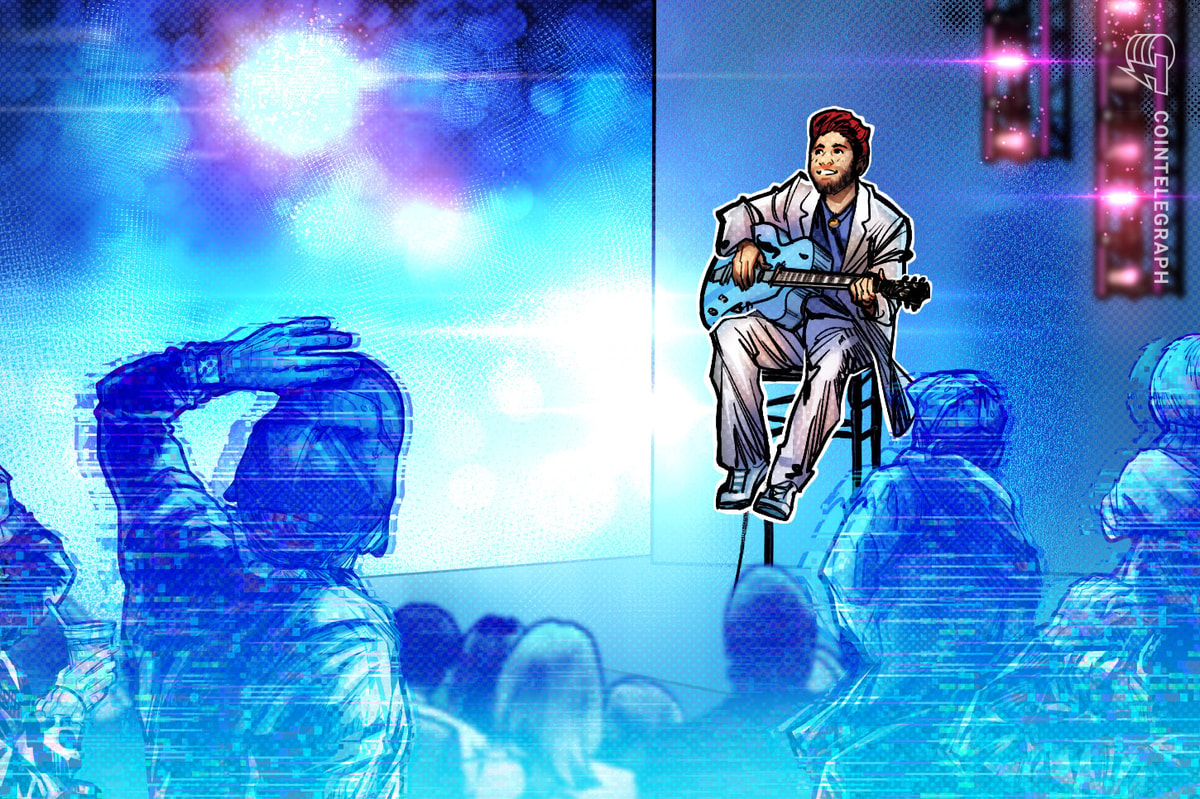Web3 has become one of the hottest buzzwords in the music industry, with everyone from independent musicians to major label artists dropping nonfungib
Web3 has become one of the hottest buzzwords in the music industry, with everyone from independent musicians to major label artists dropping nonfungible token (NFT) collections and throwing concerts in the metaverse. But for many, the actual use cases and potential of these technologies remain shrouded in mystery and confusion.
On May 6, Water & Music held its inaugural Wavelengths Summit, a one-day event bringing together musicians, industry executives, artist managers, researchers and technologists to explore the bleeding edge of music technology and democratize access to information. On the agenda were talks about blockchain-based communities, the growing influence of artificial intelligence on the music industry and the future of artist revenue streams.
Water & Music is a collaborative music technology research network founded in 2016 by writer Cherie Hu as a free newsletter. It has since evolved to encompass a paid membership structure, an extensive online collaboration network and in-person events. Its research often touches upon Web3 and how blockchain impacts the music industry.
“I think the music industry, in particular, has suffered from information silos,” Hu told Cointelegraph. “If you’re trying to figure out how fans interact with your music in a holistic way, it’s actually a huge challenge.” Enter Water & Music, which seeks to empower its community with the knowledge needed to thrive in the digital era.
Community
A central focus of both Water & Music as an organization and its Wavelengths Summit was building a sense of community. The event’s emphasis on the importance of community-building in music and Web3 was ever-present, from the topics chosen for discussion — including sessions titled “Music Community Building and Decentralization: Lessons from History” and “URL to IRL: Uniting Music Communities Online and Offline” — to the way the event itself was hosted and organized.
For instance, Hu opened the summit by laying out four ground rules for positive community-building: “Be kind and respectful,” “Stay critical, “No shilling,” and “Have fun!” She also announced that there would be no panels; instead, experts would facilitate conversations, with audience members encouraged to jump in at any point. Talks on the main stage were accompanied by a large screen displaying live comments and questions from audience members via an app called Slido.
~crowdsourcing~ data — so fascinating to see the wide range of how people define fandom #Wavelengths2023 @water_and_music pic.twitter.com/VUUqHspAn7
— cherie hu (@cheriehu42) May 6, 2023
“I think what we were really aiming for is recreating the magic of our Water & Music Discord,” Diana Gremore, Water & Music’s events director, told Cointelegraph. “We have such a thoughtful, articulate, critical, passionate, curious community, so we wanted to do our best to facilitate how that URL community translates into an IRL experience.”
Web3 community building for musicians
Throughout the day, many of the conversations touched on how Web3 and blockchain technologies are being explored in the world of music. During the “Music Community Building and Decentralization” session, participants discussed how online communities such as decentralized autonomous organizations (DAOs) are the next step in a long history of decentralization.
As pointed out by Austin Robey, co-founder of Metalabel — which is building a blockchain-based platform for collaborative artist releases — on-chain voting and governance are digital versions of what real-world communities have always done. Social spaces are always governed, and communities are always decision-making. And while DAOs may be subject to “code,” real-world communities have always been subject to social “codes.”
“Music Community Building and Decentralization: Lessons from History”#Wavelengths2023 has no panels, just discussions. Anyone can join the conversation at anytime. The focus of this collab conversation: What can #Web3 music communities learn from traditional music communities? pic.twitter.com/FFpw4N3Vtf
— a Jonathan named MADic (@maddopemadic) May 6, 2023
The discussion was moderated by Kaitlyn Davies, membership lead at Friends With Benefits — a social DAO for creatives — and head of curatorial partnerships at Refraction — a DAO for artists and creators with a particular focus on live music events. Davies told Cointelegraph that the preexisting decentralization in music communities helps explain why so many in the music world gravitate toward Web3.
“You see a lot of people who have always been interested in decentralized ways of organizing or sort of left-of-center means of organizing look to this technology to keep doing their work — not even to get bigger or to cast a further net but just to enable what they were already doing,” she said, adding:
“Cultivating a scene or a community, that’s really important, and that’s what drives culture….
cointelegraph.com
